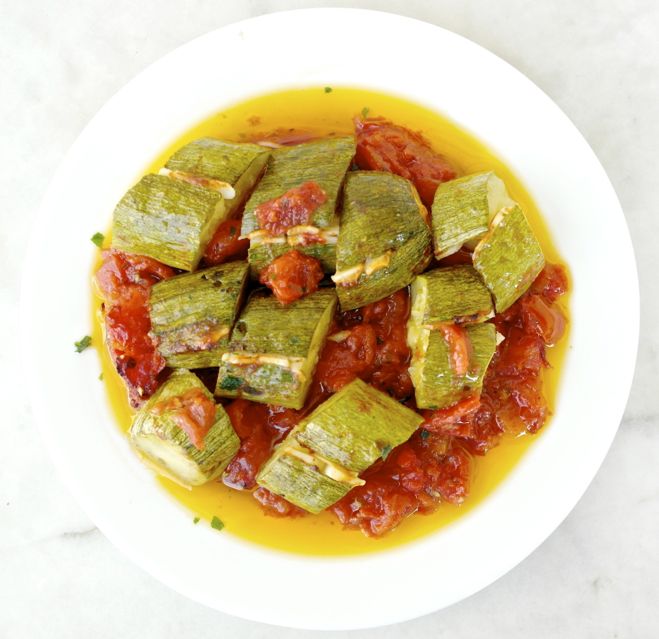
1. They don’t use enough olive oil

I cannot count how many times I’ve seen so-called traditional Greek recipes calling for a fraction of olive oil that is normally used. When we make the traditional vegetable based recipes such as briami, green beans, legumes and so much more, we add a lot of olive oil. There is a reason for this, all that olive oil makes these vegetables delicious and easy to eat. These dishes are meant to be a main course so in essence you are getting over 4 servings of vegetables in one sitting easily. The olive oil that these vegetables are cooked in makes them tasty and actually decadent and filling. My proof ? My kids love these dishes, they eat almost a pound of vegetables a day, and olive oil plays an important role in that. And if you are trying to save calories, you need to remember that this is a main course so the calorie level is moderate, also plenty of the olive oil will stay on your plate, so you are not consuming all those calories. If you want to use only a teaspoon of olive oil, go ahead, you’ll end up with a watery, bland dish that has little resemblance to anything Greek.
2. Anything with feta and oregano is called “Greek”
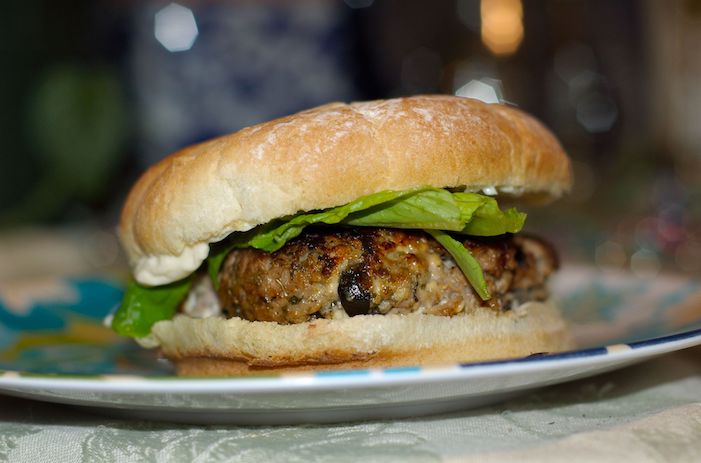
What’s with this? Really, feta is Greek, and parmesan is Italian. Do you call recipes with parmesan Italian? No. Just because you add a few Greek or Mediterranean ingredients to a recipe does not mean that the dish is actually from that place. Not only is it misleading, but it can give the wrong impression and reputation about a specific cuisine. It’s one thing to be inspired by Greek cuisine, but it’s quite another to call something Greek when it isn’t. So don’t be fooled by the addition of feta, oregano or lemon in otherwise westernized recipes.
3. Meat dishes with pork and lamb are considered the quintessential Greek dishes
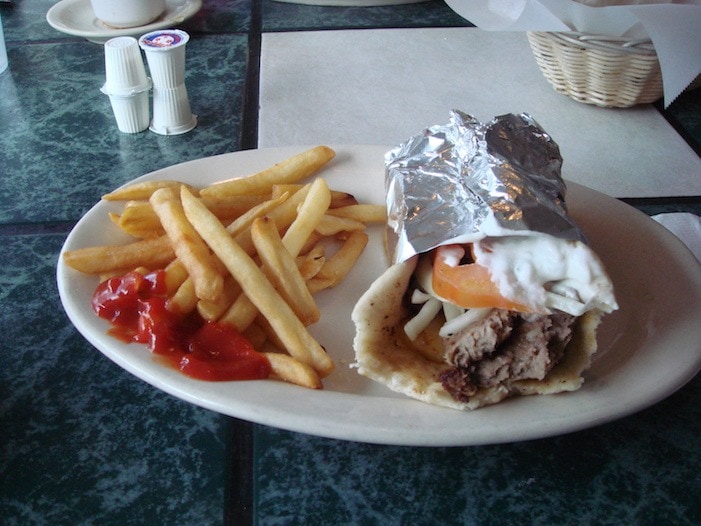
Yes, lamb is a common meat in Greece. But did you know that traditionally Greeks did not eat meat for over 180 days a year? Their diet was mostly vegetarian. Lamb was consumed during celebrations and holidays, it was not an everyday occurrence. The same goes for souvlaki. In fact a few decades ago you could only find souvlaki at bus stops or rest areas in Greece. As for gyros, it is essentially a Greek-American street food although it appears to be inspired by the Turkish doner-kebab. I don’t know anyone who makes gyros at home.
4. Middle eastern foods such as pita bread and hummus are considered Greek
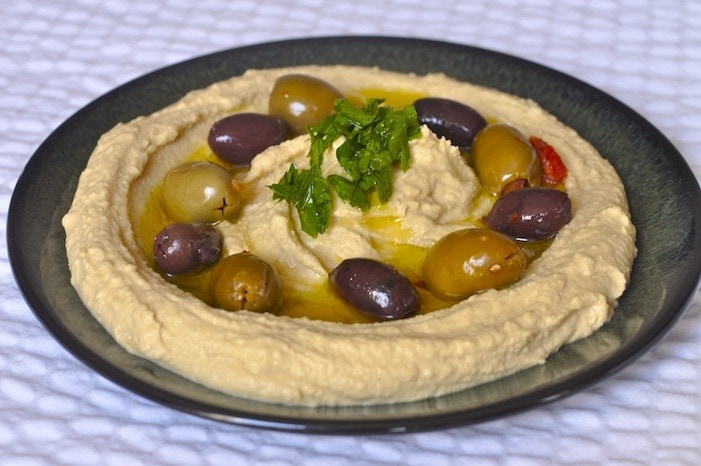
Several middle eastern dishes such as hummus or baba ganoush are based on traditional Mediterranean ingredients and often I see them in Greek restaurants, however they are not actually Greek. Yes, they are healthy and delicious but Greek they are not. I have actually been interviewed on what to eat at a Greek restaurant by an American magazine and I was given a list of middle eastern foods to choose from. I politely explained that these dishes are not actually Greek. As for pita bread, well the main type of bread in Greek cuisine is bread and in some areas rusks, like the famous barley rusks from Crete (paximadia).
5. “Greek” yogurt is Greek
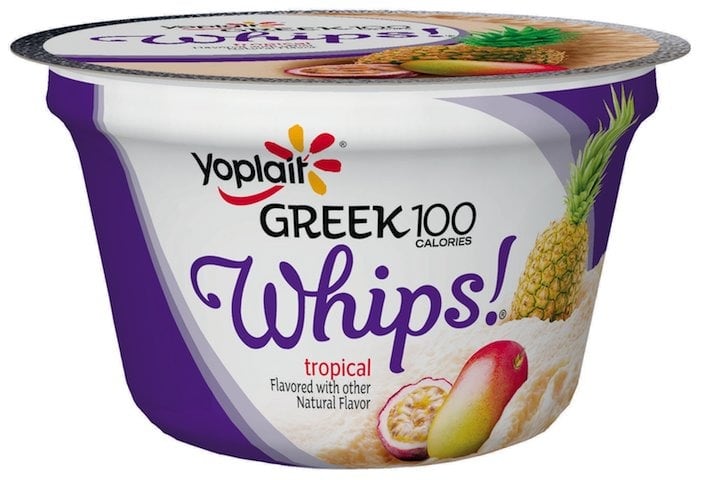
Actually all those yogurts out on the market that call themselves Greek, are not Greek at all. Unfortunately, especially in U.S. the term Greek has come to mean strained yogurt, not actual Greek yogurt. In reality, in order for a yogurt to be considered Greek, it must be made in Greece using Greek milk. In addition, if you think that eating key lime pie flavored Greek yogurt is part of a Mediterranean diet, I can assure you that it is not. Traditional Greek yogurt is usually made from sheep’s milk and is consumed plain or with a bit of honey and sometimes walnuts. It is quite different both nutritionally and flavor wise.

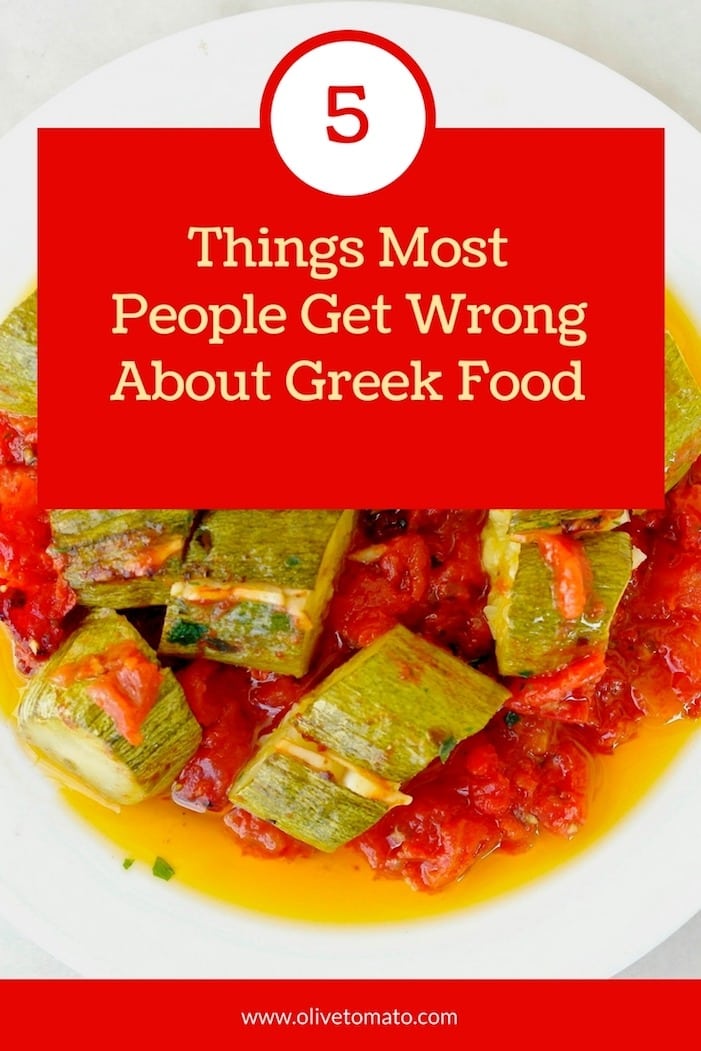
Wow, quite a dismissive point of view. So what actually does real, genuine Greek food look like? One of the problems for a foodie tourist is whether Greek Taverna food is representative of the typical national diet or whether it’s just laid on to suit visitors’ expectations. I find that, on a visit to Greece, which I do quite frequently, the novelty wears off quite quickly and I become impatient and bored with the same old plates of hummus, souvlaki, moussaka, gyros and so on. It’s as if no restauranteur has the courage to say “to hell with the tourists’ corny expectations, I’ll cook original, using my own ideas and recipes from good Greek ingredients, and wow them”. This does not happen in France, Italy or even in Turkey where the variations and flavours are endless. Greek chefs need to get their heads into gear and be bold and experiment.
As for Greek yoghurt, of course it’s mostly fake, but it doesn’t really take a lot of effort to look for the magic words on the container ‘made in Greece’, or better still to give the store owner a piece of your mind and tell him/her “you’re selling stuff you call Greek yoghurt, but where’s the real deal . . from Greece?”.
Dismissive, you say? As you go on to dismiss thousands of years of tradition and all modern Greek chefs? Yes I’m so sure you call up the Walton family to complain about authenticity…hang on you don’t? How about that.
ok fine what IS Greek?
Great question, and I’m still searching for the answer. Some folk will tell you “oh, you need to go to the decent restaurants in Athens”. But why? Greece is a big country and if there is real, imaginative Greek food (which I rarely found) then surely it ought to be available from enterprising chefs much more widely. Presently every local taverna has the same stuff. They might as well all use the same menu printed in the same printing works because the lack of interesting dishes unique to individual chefs is quite depressing.
Excellent article Elena. We couldn’t agree more. We took the liberty to share it on our facebook page. Excellent work.
Interesting post. I’ve made several of your vegetable recipes which use generous quantities of olive oil and can confirm that they are indeed delicious. And my children, like yours, are happy to consume lots of vegetables when they are prepared this way.
Thanks for sharing Christine!
Great and accurate article , thank you for sharing this information!
Regarding olive oil: in the Midwest it is hard to find quality extra virgin olive oil at affordable prices which is why when used, it is used sparingly.
Nowadays there several online sources for olive oil that can be delivered. Also, apart from the flavor olive oil imparts to vegetables, to get the benefits of the Mediterranean diet, adequate consumption of olive oil is key.
I have found Amazon to be a great resource for authentic Greek evoo, Kalamata olives, Trajan’s and other Greek products and less expensive that purchasing at local stores.
More or less the author is making the usual mistake which making most of greeks thinking on the greek cuisine as a cuisine that existing only in today Greece. Well, this is a big mistake. By this way you have to take out all the dishes from Minor Asia, Pontus, Cyprus, greeks of Egypt and so on. It is existing pitta, sarmades, imam, baclavades, piroskia, sourvades, haloumia etc. Greek cuisine is not only cretan and the suburbs of Athens.
Thank you. Very nice.
Thank you for writing this! When I travel back to the US and see all of the ‘Greek’ yogurt I have to explain to family and friends it is not really Greek yogurt! And don’t get me started on America’s number #1 selling Greek yogurt that is not even Greek owned:-) It is very misleading.
I’ve been searching everywhere for real Greek yogurt but I haven’t found it. Do you know any brands you can buy in the U.S. that are the real thing? Would love to try it.
Fage is the closest taste to true Greek yogurt. It is great.
Great article everything that you have said is so true. In response to the amount of olive oil it takes us all a while to get used it , since we were not raised that way. I’m also impressed that greek olive oil cannot be altered and this is why it taste so good .
Great article Elena! I totally agree with all of this. When I was researching the diet in Crete I found that most recipes had a cup of olive oil and some had 2 cups! It is disheartening to go to “Greek” restaurants in America that not only use very little olive oil, but inferior oil as well! I have a question: I have found that the best Greek yogurt I can find in most supermarkets in America is the Fage brand. To me, it’s the only one I have tried here that tastes anything like real Greek yogurt> Have you heard any of others? Thanks for the info!
As far as I can tell, FAGE is the only plausibly Greek Greek yogurt widely available in the States. Chobani is 99% marketing. Anything produced by Danone or General Mills…apokleietai!
Generally, as I mentioned traditional Greek yogurt is usually from sheep’s milk. But when it comes to cow’s milk yogurt you want to get the kind that does include fillers or gelatin. Here’s a post a=on tips how to buy yogurt: https://www.olivetomato.com/choosing-and-eating-greek-yogurt/
Perhaps Italian food has fared worse still, at least until recently. Many restaurants, even managed by Italians or people of Italian descent, with nothing but pizza, pasta and veal dishes. The pasta in huge portions. No fish or dishes based on legumes. Like western “Chinese food” it was based on what emigrants could make in work camps or settled with little access to the nutritious food they ate, despite poverty (like Greeks, Levantines and other Mediterranean emigrants).
And a dearth of greens, cultivated of foraged, so important in the Mediterranean diet. Tomatoes and perhaps courgettes/zucchini but none of the bitter greens that are so key to Med diet. Far too much sugar…
Though my Lebanese friends are just as horrified at the “interpretation” of their foodways.
Interesting to know about the Gyro – I always thought that was actually a traditional Greek food. It shows how little we know about traditional foods from other countries. Thanks for sharing!